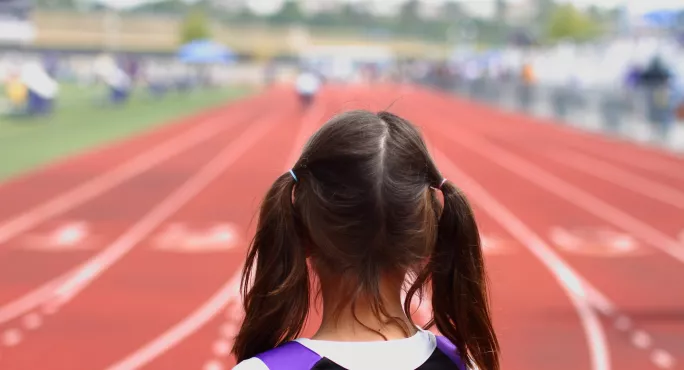Catch up? Teachers know what to do, so leave us to it

One question has dominated education in the past week: how will learners “catch up” on their learning?
This has some connotations that may not be obvious at first. Notably, if learners are catching up, who exactly are they catching up with?
Here in Scotland, every child is in the same position at the moment: no formal schooling. Of course, there are exceptions to this, which have been well picked over by anyone with an opinion on education, as have issues around lack of wifi, lack of devices, lack of work, too much work, and so on. But at the end of the day, no learner is in school “as normal”, so a huge number of learners are not where they would normally be at this stage of the year.
Background: ‘Pupils need individualised support - not more school’
Quick read: Covid catch-up can’t take tired teachers for granted
Opinion: 5 ways we should be more like Finland during Covid-19
Another connotation of “catching up” is that learners are not completing the work set by their teacher and, therefore, need to catch up with peers. The reasons for this have also been chewed over, but a simple truth is that some learners aren’t doing the work because they don’t want to. We see the same in school, so there should be no surprise that we are seeing it during remote learning, too.
What’s more, catching up implies a race towards a finish line. But what finish lines exist and who decides where they are? Is the academic year the finish line? Or transition points between primary and secondary, the broad general education (the earlier part of secondary school in Scotland)and the senior phase? Or the point at which students leave secondary education completely?
As a workforce, we teachers are strangled with dates and deadlines. We are entrenched in completing stages of work, assessments and reporting as per the school calendar. But I love a calendar and a guide to work to, despite the pressure that applies. So I echo the calls of Mark Priestley and Marina Shapira, Gemma Clark, and John Low and Neil McLennan (in articles recently published by Tes Scotland): now is the time to look at adapting our work practices to form a clear path for guiding learners through all the “lost” learning.
In my own subject, drama, my S1 learners, in their first year of secondary school, have not been able to work with a variety of their peers as a result of performance bubbles, while the games we play to encourage turn taking, listening and just laughing have been limited. Our S6 dance leaders can’t run dance club, and bond and inspire S1-2 learners. In music, they have only been able to experience certain instruments and can’t play in the orchestra. My S2 learners haven’t experienced a school show yet.
Meanwhile, the huge range of clubs and activities offered across my school have been severely limited by Covid-19. Every school will be in a similar position.
I know that when I am back in the school building with learners, I will revisit the content I am currently sharing remotely - and I won’t be the only teacher planning to do this. What should be a more central focus in terms of catching up, however, is the hours of lost communication and relationship-building opportunities.
During the lockdowns, we have all been forced into communicating through screens to keep us educated, informed and entertained. When we are back in school, we need to focus on learners talking and listening to one another, getting to know one another and rediscovering what school is meant to be like.
It is my opinion that the most crucial catching up to be done is that catching up with one another: rebuilding social skills, re-establishing boundaries and expectations, being engaged in conversations - and generally being human. This is the essential part of school that learners and staff are missing out on. These opportunities need to be offered in ways that teachers and schools see fit, whether naturally occurring during lessons, in specialised sessions such as nurture groups or mentoring, or through extracurricular opportunities.
And please, just leave us to it - we don’t need another set of deadlines handed down to work out what’s best for our learners.
Kirsty Ferns is a faculty head of performing arts at a secondary school in Scotland. She tweets @mrs_ferns
Register with Tes and you can read two free articles every month plus you'll have access to our range of award-winning newsletters.
Keep reading with our special offer!
You’ve reached your limit of free articles this month.
- Unlimited access to all Tes magazine content
- Save your favourite articles and gift them to your colleagues
- Exclusive subscriber-only stories
- Over 200,000 archived articles
- Unlimited access to all Tes magazine content
- Save your favourite articles and gift them to your colleagues
- Exclusive subscriber-only stories
- Over 200,000 archived articles